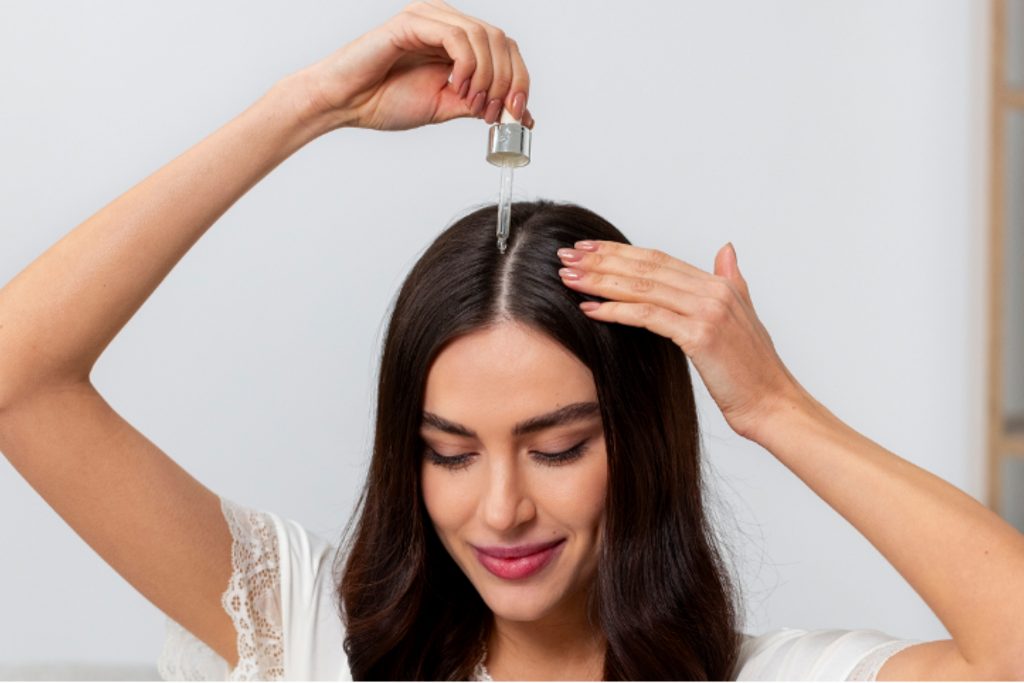What Science Says About This Popular Hair Vitamin
Biotin is one of the most widely marketed supplements for hair growth—and one of the most misunderstood. Often found in gummies, tablets, and hair health kits, it’s become almost synonymous with thicker, longer hair. But what does science actually say about its role in stimulating hair growth?
Is biotin really effective, or is it just hype?
What is Biotin?
Biotin, also known as vitamin B7, is a water-soluble B-complex vitamin. It plays a key role in:
- Keratin production (the primary protein that makes up your hair, skin, and nails)
- Fatty acid metabolism, which supports the health of hair follicles
- Cell growth and enzyme activity, both important for hair cycle regulation
Because hair follicles are among the most rapidly dividing cells in the body, they depend heavily on proper nutritional support—including biotin.
Does Biotin Really Stimulate Hair Growth?
Scientific evidence shows that biotin can improve hair growth—but mostly in people with a biotin deficiency. In these cases, supplementation often leads to noticeable improvements in hair thickness and reduced shedding.
However, biotin deficiency is rare. Most people get enough through a balanced diet (from foods like eggs, nuts, whole grains, and legumes).
For those without a deficiency, the benefits of additional biotin are less clear—but it may still support overall follicle function, especially when combined with other nutrients.
Can Too Much Biotin Be Harmful?
Biotin is generally considered safe, even at high doses. But excessive intake can interfere with blood test results, including thyroid, hormone, and cardiac markers. For this reason, dermatologists recommend:
- Using moderate, clinically aligned doses
- Informing your doctor before any lab tests if you take biotin supplements
A Balanced Nutritional Approach
Rather than offering biotin in isolation, Aveil’s Hair Health Kit combines it with other essential ingredients that work together to support healthy hair:
- Biotin (B7): Supports keratin production
- Iron & Zinc: Crucial for cell repair and hair follicle function
- Amino acids: Help build the structural proteins of the hair strand
- Vitamin D: Helps regulate the hair cycle and reduce shedding
This well-rounded formula is designed to provide the kind of support dermatologists often recommend—not as a “miracle cure,” but as part of a consistent, proactive hair care strategy.
So, Should You Take Biotin?
Here’s what we recommend:
- Yes, if you’re biotin-deficient or have dietary gaps (e.g., vegan diets, poor absorption issues)
- Possibly, if you’re seeing excessive shedding with no medical cause
And always remember: if you’re experiencing rapid or unusual hair loss, it’s best to consult with a dermatologist or trichologist before starting supplements.
Final Thoughts
Biotin is not a magic fix—but it can be a valuable part of a broader approach to hair wellness. Its effectiveness depends on your individual nutritional status, the presence of underlying conditions, and how it’s combined with other hair-supportive nutrients.
If you’re looking to support your hair growth naturally and consistently, formulations like Aveil’s Hair Health Kit offer a balanced, dermatologist-formulated approach that goes beyond just biotin.
Learn more about nutrient-based hair care at www.aveil.in

